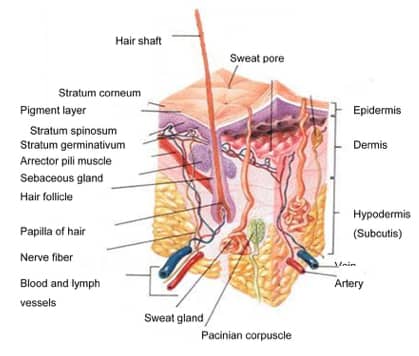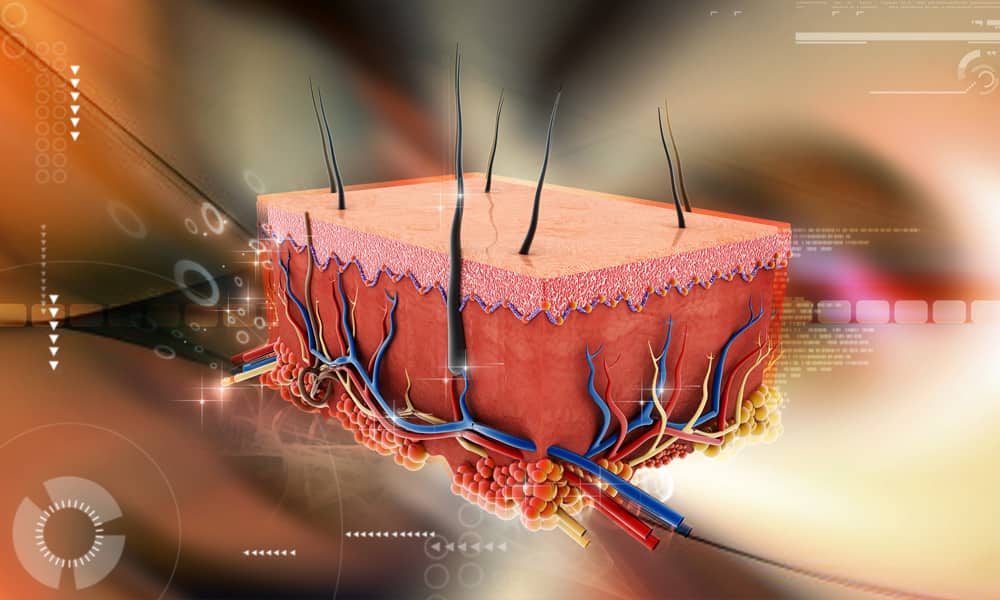1. Protection
Skin’s “barrier” has become crucially important in today’s environment. It is our “first line of defense”, a critical filter and barrier to protect and regulate our body’s functions. During our daily activities, inside and outside the home, workplace, schools and during recreational activities there are sources of invasive pollution, impacts and pressure, variations in temperature, micro-organisms, radiation, and chemicals.
 2. Sensation
2. Sensation
The skin contains an extensive network of nerve cells that detect and relay changes in the environment. There are separate receptors for heat, cold, touch, and pain. Damage to these nerve cells is known as neuropathy, which results in a loss of sensation in the affected areas. Patients with neuropathy may not feel pain when they suffer injury, increasing the risk of severe wounding or the worsening of an existing wound.
3. Regulation
The skin regulates several aspects of physiology, including body temperature via sweat and hair, and changes in peripheral circulation and fluid balance via sweat. It also acts as a reservoir for Vitamin D. Protecting this “barrier” has become crucially important in today’s environment. It is our “first line of defense”, a critical filter to protect and regulate our body’s functions. During our daily activities, inside and outside the home, workplace, schools and during recreational activities there are sources of invasive pollution.

